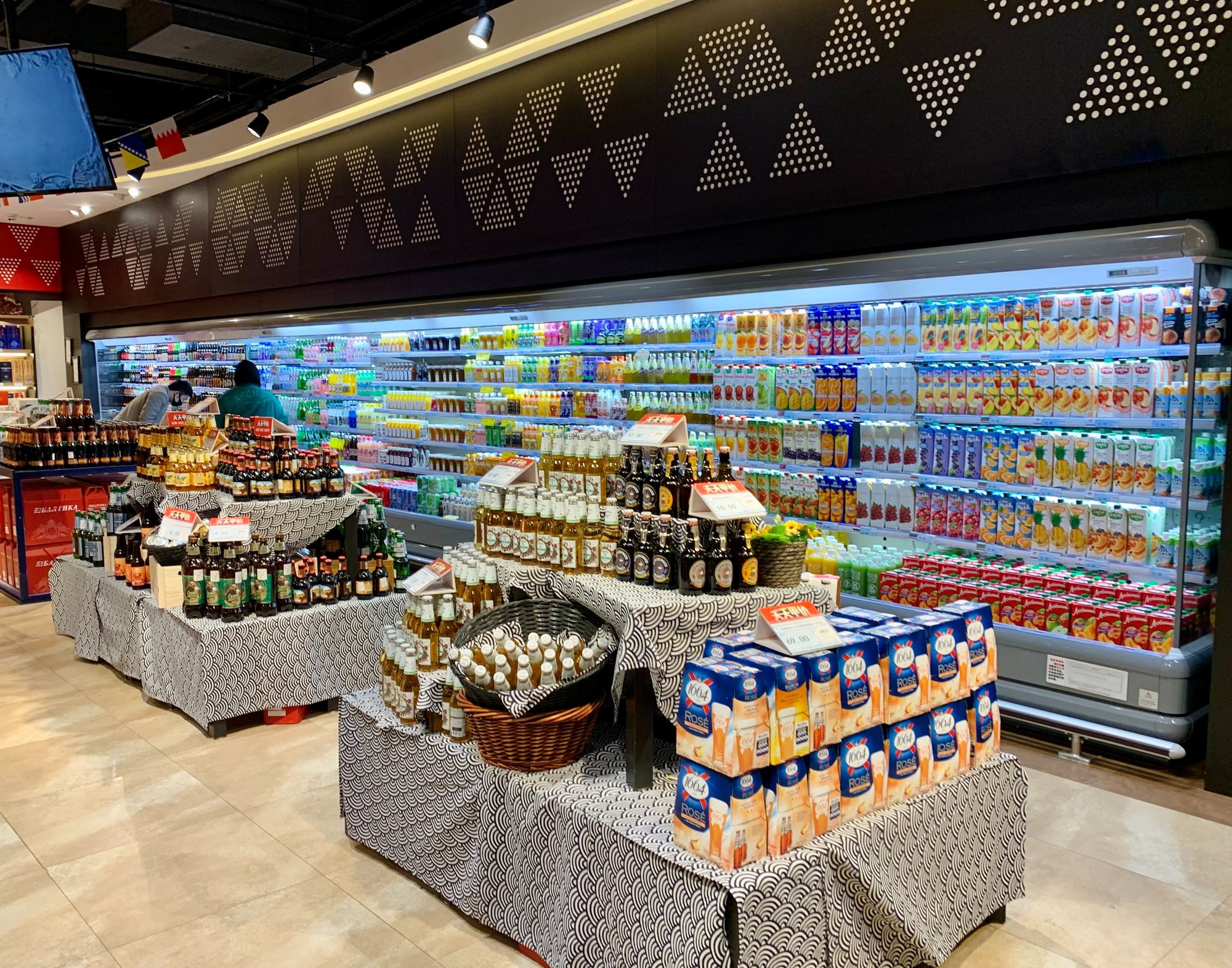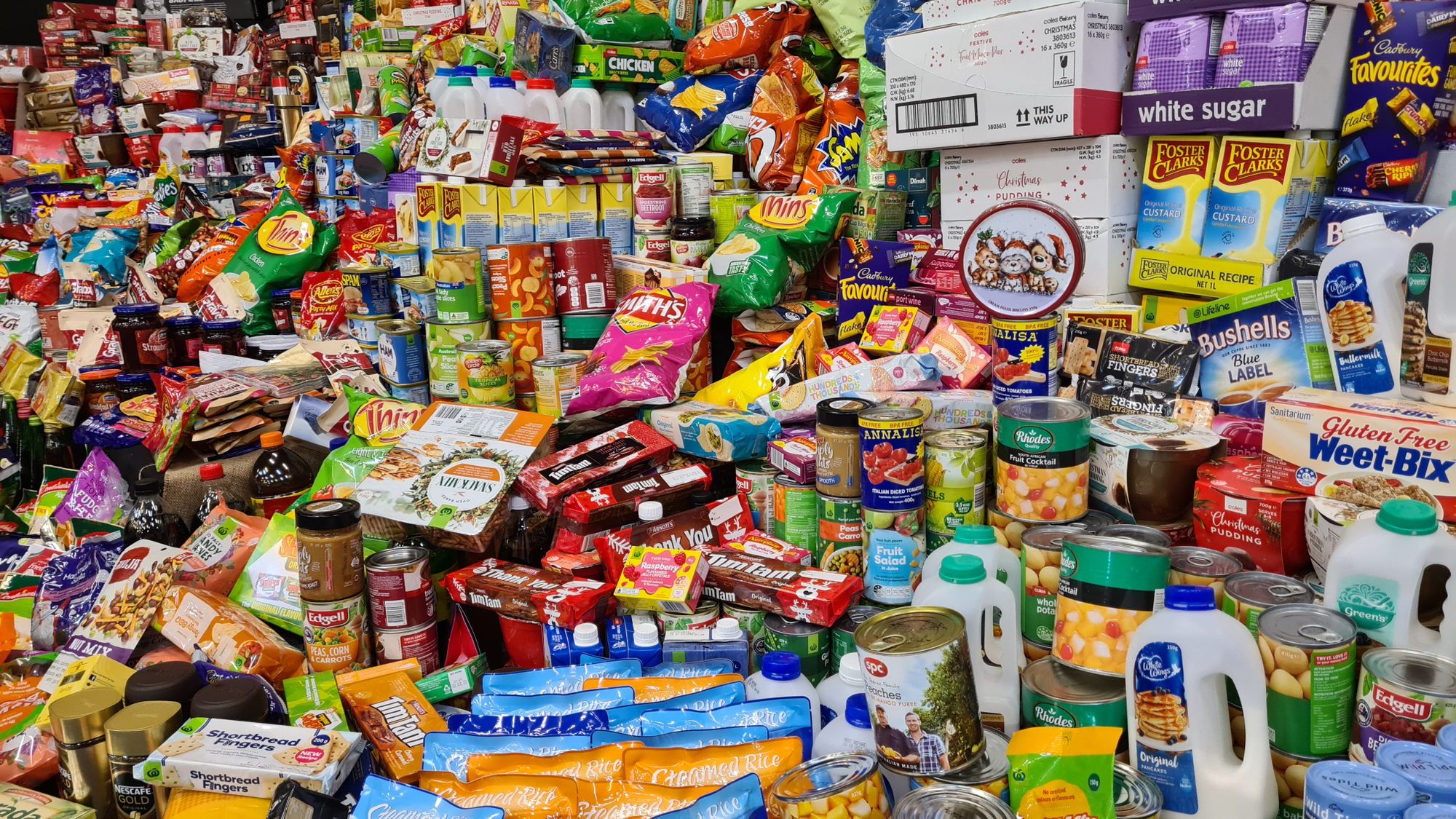The COVID-19 pandemic has significantly impacted the global economy, and the food manufacturing and supply chain industries are no exception.
The United States has experienced unprecedented disruptions in its food manufacturing and supply chain, which have led to shortages of essential food items, increased food prices, and significant changes in consumer behavior.
According to a report by the United States Department of Agriculture (USDA), the pandemic has significantly impacted food supply chains, including labor shortages, transportation disruptions, and reduced production capacities.
The pandemic has caused significant disruptions in the global supply chain, leading to significant shortages and increased costs for essential food items. The United States food cost increased by 2.6% in 2021, marking the largest annual increase since 2011, according to the Bureau of Labor Statistics.
This increase in food prices has affected households of all income levels but disproportionately affected low-income households, who spend a higher proportion of their income on food.
The pandemic has also led to significant changes in consumer behavior, with many people opting for online grocery shopping and home delivery services to avoid crowded stores.
The impact of COVID-19 on the food manufacturing and supply chain industries has been widespread and complex, affecting all aspects of the food system, from production to distribution to retail.

To better understand the impact of COVID-19 on food manufacturing and supply chains, it is essential to examine the various factors that have contributed to these disruptions. These factors include changes in consumer behavior, government policies and regulations, labor shortages, transportation disruptions, and global economic conditions.
By examining these factors, we can better understand the challenges facing the food manufacturing and supply chain industries and develop strategies to overcome them.
Here's what we shall cover in this post:
- Overview of the Food Industry's Response to COVID-19
- The Rise of E-Commerce and Online Grocery Shopping
- Safety Measures Implemented by Food Manufacturers and Distributors
- Financial Impacts on the Food Industry
- The Role of Technology in Mitigating Supply Chain Challenges
- How Deskera Can Assist You?
- Conclusion
- Key Takeaways
Overview of the Food Industry's Response to COVID-19
The COVID-19 pandemic has significantly impacted the food industry, from supply chain disruptions to changes in consumer behavior. Food manufacturers, retailers, and distributors have had to adapt to new challenges and implement measures to ensure the safety of their employees and customers.
To ensure the continuity of the food supply chain, food manufacturers and distributors have implemented several measures. These measures include:
- Increasing production capacities to meet the increased demand for essential food items, such as rice, flour, and canned goods.
- Implementing new safety protocols, such as social distancing measures and increased sanitation procedures, to protect workers from COVID-19.
- Establishing new partnerships with suppliers and distributors to ensure the availability of essential ingredients and materials.
- Investing in new technologies, such as automation and robotics, to increase production efficiencies and reduce the risk of COVID-19 transmission.
The COVID-19 pandemic has also led to significant changes in consumer behavior. Consumers are increasingly opting for online grocery shopping and home delivery services to avoid crowded stores. In response, food retailers and manufacturers have implemented new strategies to meet the changing needs of consumers. These strategies include:
- Expanding online sales channels and investing in new delivery technologies, such as drones and autonomous vehicles, to improve the efficiency of home deliveries.
- Offering contactless delivery and pickup options to reduce the risk of COVID-19 transmission.
- Increasing the availability of essential items, such as toilet paper and hand sanitizer, to meet the increased demand from consumers.
Challenges Faced by Food Manufacturers and Distributors
Food manufacturers and distributors have faced numerous challenges in ensuring the continuity of the food supply chain while protecting their workers and customers from COVID-19.
Supply Chain Disruptions: The COVID-19 pandemic has caused significant disruptions in the global supply chain, impacting the availability of essential ingredients and materials.
Manufacturers and distributors have faced challenges in securing raw materials, such as packaging materials and transporting finished products to retailers and customers. These disruptions have led to shortages of essential items, such as flour, rice, and canned goods, and increased prices for these items.
To overcome these challenges, food manufacturers and distributors have implemented several measures, including:
- Diversifying their supplier base to reduce reliance on a single source of raw materials.
- Implementing new transportation strategies, such as using alternative transportation methods and rerouting supply chains to avoid COVID-19 hotspots.
- Developing new production processes and product lines to use alternative ingredients or reduce reliance on specific raw materials.
Labor Shortages: The COVID-19 pandemic has led to labor shortages in the food manufacturing and distribution industry, particularly in meat processing plants and other essential industries. Workers in these industries are at increased risk of contracting COVID-19 due to their work's close working conditions and nature.
As a result, many workers have been forced to stay home to care for themselves or their family members, leading to labor shortages and production slowdowns.
To address these labor shortages, food manufacturers and distributors have implemented several measures, including:
- Implementing new safety protocols, such as social distancing measures and increased sanitation procedures, to protect workers from COVID-19.
- Increasing wages and benefits to attract and retain workers.
- Investing in new technologies, such as automation and robotics, to reduce the need for human labor in production processes.
Increased Demand for Essential Items: The COVID-19 pandemic has led to an increased demand for essential food items, such as rice, flour, and canned goods. This increased demand has put pressure on food manufacturers and distributors to increase production and distribution capacities, leading to challenges in meeting the demand.
To address the increased demand for essential items, food manufacturers and distributors have implemented several measures, including:
- Increasing production capacities to meet the increased demand for essential items.
- Establishing new partnerships with suppliers and distributors to ensure the availability of essential ingredients and materials.
- Offering contactless delivery and pickup options to reduce the risk of COVID-19 transmission.
Impacts on the Global Food Supply Chain
Disruptions in Production and Distribution: The COVID-19 pandemic has caused significant disruptions in the production and distribution of food products worldwide.
These disruptions are due to several factors, including lockdowns, travel restrictions, and labor shortages caused by COVID-19 infections. As a result, food producers and distributors have struggled to keep up with demand, leading to shortages and price increases.
Impact on Food Prices: The COVID-19 pandemic has also significantly impacted food prices worldwide. The disruptions in production and distribution have caused shortages in some regions, leading to price increases. In contrast, decreased demand in other regions has caused prices to fall.
Overall, the pandemic has caused significant fluctuations in food prices, making it difficult for producers, distributors, and consumers to plan and budget for food expenses.
Changes in Consumer Behavior: The COVID-19 pandemic has also led to changes in consumer behavior, impacting the global food supply chain. Consumers are increasingly opting for online grocery shopping and home delivery services to avoid crowded stores.
This shift has led to an increase in demand for e-commerce and home delivery services, causing logistical challenges for food producers and distributors.
Supply Chain Resilience: The COVID-19 pandemic has highlighted the importance of supply chain resilience in the food industry. The pandemic has exposed vulnerabilities in the global food supply chain, such as over-reliance on imports and centralized processing facilities.
As a result, there is a growing awareness of the need to diversify supply chains, invest in local food production, and enhance food safety and traceability.
Food Security: The COVID-19 pandemic has also raised concerns about food security, particularly in developing countries. The pandemic has disrupted food production and distribution, leading to food shortages and increased food insecurity in many regions.
To address this issue, governments, and international organizations have implemented measures to support food production and distribution, including financial assistance, food aid, and support for local food systems.
Digital Transformation: The COVID-19 pandemic has accelerated the digital transformation of the food industry. To adapt to changing consumer behavior and supply chain disruptions, food producers and distributors are investing in digital technologies such as e-commerce, blockchain, and artificial intelligence.
These technologies offer opportunities to improve supply chain efficiency, enhance food safety and traceability, and better respond to changing consumer demand.
The Rise of E-Commerce and Online Grocery Shopping
Increased Demand for Online Shopping: The COVID-19 pandemic has increased demand for online shopping, as consumers avoid crowded stores and prefer to shop from the safety of their homes.
This trend has been particularly evident in the grocery industry, with online grocery sales increasing significantly in many regions worldwide.
Challenges for Retailers: The rise of e-commerce and online grocery shopping has presented significant challenges for retailers, including the need to invest in technology and logistics to support online sales, the need to adapt to changing consumer behavior and preferences, and the need to ensure product availability and timely delivery.
Challenges for Consumers: Online grocery shopping has also presented challenges for consumers, including the need to adjust to a new shopping experience, the potential for delivery delays and product substitutions, and the need to ensure the quality and freshness of perishable items.
Benefits of E-Commerce and Online Grocery Shopping: Despite the challenges posed by the rise of e-commerce and online grocery shopping, this trend has also brought many benefits to consumers and retailers.
Online shopping offers convenience, flexibility, and the ability to compare prices and products easily. For retailers, online sales offer the potential for increased revenue, improved customer loyalty, and access to new markets.
Future of Online Grocery Shopping: The rise of e-commerce and online grocery shopping is expected to continue even after the COVID-19 pandemic subsides. Consumers have become accustomed to the convenience of online shopping, and many retailers are investing in technology and logistics to support this trend.
However, the future of online grocery shopping will depend on factors such as technological advancements, changes in consumer behavior, and the ability of retailers to address the challenges posed by this trend.
Supply Chain Disruptions and Shortages of Essential Products
Disruptions to Global Supply Chains: The COVID-19 pandemic has disrupted global supply chains in the food manufacturing industry, as lockdowns, travel restrictions, and other measures have resulted in challenges in sourcing raw materials and transporting finished goods.
This has led to shortages of essential products such as meat, dairy, and grains.
Challenges in Meeting Consumer Demand: Supply chain disruptions have created challenges in meeting consumer demand for essential products, as manufacturers struggle to keep up with changing demand patterns and ensure product availability.
This has led to consumer panic buying and hoarding, exacerbating the shortages and creating further challenges for manufacturers.
Factors Contributing to Supply Chain Disruptions: Several factors have contributed to the disruptions in supply chains in the food manufacturing industry, including the closure of processing plants due to outbreaks of COVID-19 among workers, restrictions on cross-border travel and trade, and disruptions in logistics and transportation.
Steps Being Taken to Address Supply Chain Challenges: Manufacturers and distributors in the food manufacturing industry are taking steps to address the challenges posed by supply chain disruptions, including implementing new safety protocols to protect workers, increasing investment in technology and automation to improve supply chain efficiency, and developing new sourcing strategies to ensure product availability.
Safety Measures Implemented by Food Manufacturers and Distributors
Personal Protective Equipment (PPE) and Hygiene Protocols: Food manufacturers and distributors have implemented new personal protective equipment (PPE) requirements and hygiene protocols to protect workers and consumers from the spread of COVID-19.
These measures include the use of face masks, gloves, and other protective equipment, as well as increased cleaning and sanitation protocols in processing plants and distribution centers.
Social Distancing Measures: Social distancing measures have also been implemented in food manufacturing and distribution facilities to prevent the spread of COVID-19. This includes limiting the number of workers in a facility at any given time, spacing out workstations, and implementing physical barriers to maintain distance between workers.
Contact Tracing and Testing: Food manufacturers and distributors have also implemented contact tracing and testing protocols to identify and isolate workers who may have been exposed to COVID-19. This includes regular testing of workers and tracking of contacts to prevent the further spread of the virus.
Remote Work and Flexible Scheduling: In some cases, food manufacturers and distributors have implemented remote work and flexible scheduling policies to reduce the number of workers in facilities and allow for social distancing measures to be implemented more effectively.
Impacts on the Food Industry: The implementation of new safety measures due to COVID-19 has had significant impacts on the food manufacturing and distribution industry, including increased costs associated with PPE and hygiene protocols, disruptions in supply chains due to outbreaks among workers, and changes in consumer demand patterns.
Long-Term Implications: The safety measures implemented by food manufacturers and distributors due to COVID-19 may have long-term implications for the industry, including changes in supply chain management practices, increased investment in technology and automation to reduce the need for human workers, and changes in consumer behavior and preferences.
Labor Issues and the Impact on Production
The COVID-19 pandemic has significantly impacted labor issues in the food manufacturing industry. As outbreaks of the virus have occurred among workers in processing plants and other facilities, there have been challenges in maintaining production levels and meeting consumer demand.
Outbreaks of COVID-19 Among Workers: One of the primary challenges facing the food manufacturing industry during the pandemic has been outbreaks of COVID-19 among workers. These outbreaks have occurred in processing plants, warehouses, and other facilities, resulting in worker illness and absenteeism.
Impacts on Production: The outbreaks of COVID-19 among workers have significantly impacted production levels in the food manufacturing industry. As workers become ill or are required to quarantine due to exposure, there have been challenges in maintaining production levels and meeting consumer demand.
Worker Safety Protocols: In response to the outbreaks of COVID-19 among workers, food manufacturers, and distributors have implemented new safety protocols to protect workers and reduce the risk of virus transmission. These protocols may include personal protective equipment, social distancing measures, and enhanced cleaning and disinfection practices.
Labor Shortages: As workers become ill or are required to quarantine due to exposure to COVID-19, there have been labor shortages in the food manufacturing industry. This has led to challenges in meeting consumer demand and maintaining production levels.
Impacts on Worker Health: The outbreaks of COVID-19 among workers in the food manufacturing industry have also had impacts on worker health. Many workers have become ill with the virus; some have experienced severe illness or even died. There have also been concerns about the mental health impacts of working in high-risk environments during the pandemic.
Steps Being Taken to Address Labor Issues: Food manufacturers and distributors are taking steps to address the labor issues facing the industry during the pandemic. These may include implementing new safety protocols, increasing investment in automation and technology to reduce reliance on human labor, and developing new sourcing strategies to ensure product availability.
Financial Impacts on the Food Industry
Government Support Programs: To help offset the financial impacts of COVID-19, many governments around the world have implemented support programs for the food industry.
These may include financial assistance to help cover costs associated with implementing new safety protocols, grants to support innovation and development of new products, and tax relief or deferrals to help with cash flow.
Increased Costs: The COVID-19 pandemic has also led to increased costs for food manufacturers and distributors. The implementation of new safety protocols, including personal protective equipment and enhanced cleaning and disinfection practices, has added to the cost of production.
In addition, supply chain disruptions have increased the cost of transportation and logistics, further impacting the industry's financial performance.
Revenue Losses: As a result of the COVID-19 pandemic, many food manufacturers and distributors have experienced revenue losses. This may be due to decreased demand for certain products, supply chain disruptions, or increased costs.
Some companies have been forced to shut down production facilities or lay off workers in order to reduce costs and stay financially viable.
Investment in Technology and Innovation: Despite the financial challenges posed by COVID-19, many food manufacturers and distributors have continued to invest in technology and innovation. This may include investments in automation and robotics to reduce reliance on human labor and the development of new products to meet changing consumer demands.
The Role of Technology in Mitigating Supply Chain Challenges
The industry has been forced to adapt quickly to the changing landscape, with technology playing a key role in mitigating the challenges faced.
- Automation of production processes: Food manufacturers have been adopting automation technologies to streamline production processes and reduce the need for human contact. Robots are being used in food processing and packaging operations, reducing the risk of contamination and increasing production efficiency.
- Use of predictive analytics: Food manufacturers have been using predictive analytics to anticipate demand for products and adjust their production accordingly. This has helped to ensure that they can meet consumer needs without overproducing, leading to waste.
- Contactless delivery: In response to the pandemic, many food retailers have adopted contactless delivery options to minimize the risk of transmission. Through technology, consumers can place orders online, and delivery personnel can drop off orders without needing physical contact.
- Digitalization of supply chain management: The food industry has been digitalizing its supply chain management to enable greater visibility and traceability of products. This has helped identify potential supply chain disruptions and address them proactively.
- Use of blockchain technology: Blockchain technology has been adopted by some food manufacturers to improve supply chain transparency and traceability. It allows for the secure recording of transactions and movements of goods, providing a reliable and tamper-proof record of the product's journey from the manufacturer to the end consumer.
- Implementing AI-powered inventory management: Food manufacturers have been implementing AI-powered inventory management systems to optimize stock levels and reduce waste. This technology uses data analytics and machine learning algorithms to predict demand and ensure that the right products are in stock at the right time.
- Augmented Reality (AR) and Virtual Reality (VR): Some food manufacturers have adopted AR and VR technology to improve training for employees, enhance product displays, and provide interactive customer experiences. This technology can simulate the experience of tasting or smelling a product, allowing for a more immersive and engaging experience.
Sustainability and the Food Industry's Future
Environmental Impact:
The food industry has a significant environmental impact due to the use of natural resources such as land, water, and energy, as well as the production of greenhouse gas emissions.
Companies are increasingly adopting sustainable practices to reduce their environmental impact, such as implementing renewable energy sources, reducing packaging waste, and implementing sustainable sourcing of ingredients.
Ethical Sourcing:
Ethical sourcing is becoming more critical for companies in the food industry. Consumers are demanding transparency and traceability in the supply chain to ensure that the food they consume is produced ethically and sustainably.
Companies are implementing sustainable sourcing practices, such as working with suppliers who adhere to fair labor practices and reducing the use of pesticides and other harmful chemicals.
Waste Reduction:
Food waste is a significant problem globally, with one-third of food produced for human consumption being wasted. Companies are implementing initiatives to reduce food waste, such as donating surplus food to charities and implementing better inventory management systems to reduce overproduction.
Sustainable Packaging:
Packaging waste is a significant issue in the food industry. Companies are implementing sustainable packaging practices, such as using biodegradable materials, reducing the amount of packaging used, and implementing recycling programs.
Health and Nutrition:
The food industry has a significant impact on public health and nutrition. Companies are increasingly focusing on producing healthier food options and reducing the use of harmful additives and preservatives. The COVID-19 pandemic has also highlighted the importance of nutrition and the need for companies to provide access to healthy and affordable food options.
Technology:
Technology plays a significant role in the food industry's sustainability efforts. Companies are implementing new technologies such as precision agriculture and data analytics to optimize production processes, reduce waste, and improve supply chain efficiency.
How Deskera Can Assist You?
Deskera MRP allows you to closely monitor the manufacturing process. From the bill of materials to the production planning features, the solution helps you stay on top of your game and keep your company's competitive edge.

Deskera ERP and MRP system can help you:
- Manage production plans
- Maintain Bill of Materials
- Generate detailed reports
- Create a custom dashboard
Deskera ERP is a comprehensive system that allows you to maintain inventory, manage suppliers, and track supply chain activity in real-time, as well as streamline a variety of other corporate operations.
Deskera Books enables you to manage your accounts and finances more effectively. Maintain sound accounting practices by automating accounting operations such as billing, invoicing, and payment processing.
Deskera CRM is a strong solution that manages your sales and assists you in closing agreements quickly. It not only allows you to do critical duties such as lead generation via email, but it also provides you with a comprehensive view of your sales funnel.
Deskera People is a simple tool for taking control of your human resource management functions. The technology not only speeds up payroll processing but also allows you to manage all other activities such as overtime, benefits, bonuses, training programs, and much more. This is your chance to grow your business, increase earnings, and improve the efficiency of the entire production process.
Conclusion
The COVID-19 pandemic has significantly impacted the food industry, disrupting supply chains and causing widespread shortages of essential goods. However, the industry has shown remarkable resilience and adaptability in the face of these challenges, finding new ways to operate and meet the needs of consumers.
The industry has embraced technology, shifted to local sourcing, made changes in packaging and product offerings, and implemented safety measures to ensure the safety of its employees and customers.
As the pandemic continues to evolve, the food industry will need to continue to adapt and innovate to meet the changing needs of consumers. This may include further investment in technology and automation, a continued focus on sustainability and local sourcing, and a greater emphasis on resilience and contingency planning in the face of future disruptions.
Overall, the pandemic has highlighted the importance of a strong and resilient food system and the need for collaboration between all stakeholders in the industry. By working together, the industry can continue providing essential goods to consumers while prioritizing the safety and well-being of its employees and the environment.
Key Takeaways
- The COVID-19 pandemic has profoundly impacted the food industry, disrupting supply chains and causing widespread shortages of essential goods.
- The pandemic has exposed vulnerabilities in the global food supply chain, including reliance on international trade and just-in-time inventory management.
- As a result of the pandemic, there has been a shift towards local sourcing and increased investment in technology and automation to mitigate disruptions in the supply chain.
- The pandemic has highlighted the importance of contingency planning and resilience in the face of future disruptions to the food system.
- The food industry has had to implement new safety measures in response to the pandemic, including increased sanitation protocols and personal protective equipment for employees.
- The pandemic has accelerated the trend toward e-commerce and online grocery shopping, with many consumers opting to purchase food products online rather than in person.
- The pandemic has also highlighted the importance of sustainability in the food industry, with a growing emphasis on reducing waste and adopting more environmentally-friendly practices.
- Labor issues have been a significant challenge for the food industry during the pandemic, with many workers contracting the virus and supply chain disruptions impacting the availability of labor.
- The pandemic has also had significant financial impacts on the food industry, with many businesses struggling to stay afloat due to decreased demand and increased costs.
- Regulatory changes have been implemented in response to the pandemic, including new safety guidelines and support programs for businesses in the food industry.
Related Articles













